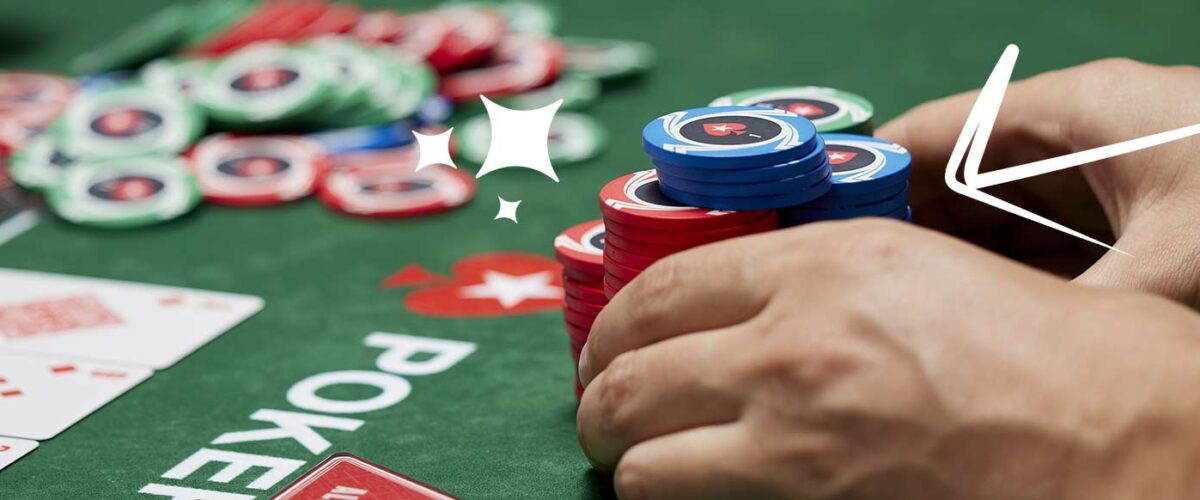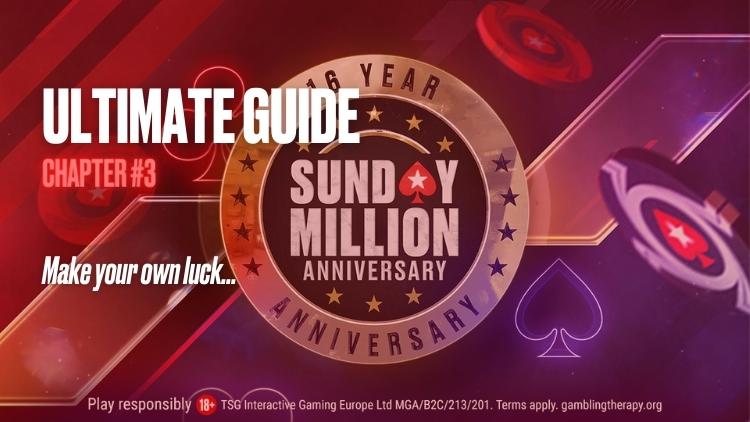This post was originally published on 20 March 2020 and updated on 16 March 2021.
It’s an agonising experience. Hand after hand comes along, but not even a glimpse of a hand worth playing.
Slowly, but steadily your stack dwindles away as you find yourself desperate for any two cards you can make a go of.
It’s not only excruciating, but this endless run of bad luck and bad cards can make you feel like the world has turned against you.
But what if instead of sitting there powerless to do anything about it you were able to change the situation?
What if, using a couple of simple techniques, you could not only stop this run of bad luck, but also make the cards you were dealt almost irrelevant.
What would almost mean an end to bad luck full stop!
Well in this chapter we’re going to tell you how to do exactly that.
We’ll show you how to put that mantra of bad luck behind you and become the kind of player who is oblivious to such excuses.
We’ll show you what you can do to change your fate.
Even if you’ve been card dead all tournament. And even if your stack is dwindling to perilous levels. And even if you see no way out of your terminal freefall.
Keep reading to find out how to end this bad luck for good.
Put an end to bad luck
So how do we end that feeling of having been cursed by a run of bad cards?
How do we make sure that even when we stop getting those good looking hands we can play well, keep accumulating chips, and get deeper into a tournament?
We’re going to go through that process here.
And it’s worth pointing out that each of the four tips that follow require no experience. It’s also the kind of thing you can do in any tournament.
You’ll be able to use these skills again and again. You’ll find yourself talking less about being card dead. Less about luck. You’ll even listen to those players who do and know their chips are yours for the taking.
Which has to be better than being “that player” who pops up in every game.
You know who we mean. The player who would be the self-professed best in the world were it not for their epic run of bad cards.
The three steps that make you stronger
We’re going to outline three simple steps that will turn your game around.
The first step is about staying disciplined. We’re not talking about laser focus. It’s as simple as paying attention.
The second step is to think situations, not hands, and is arguably the most powerful way you can level up your game right now.
And the final step involves knowing your push and fold ranges. And that’s not about memorising complicated numbers. It’s much easier than that, and we’ll show you how.
All of this puts you in a much stronger position to go deeper into a tournament when you’re card dead. It’ll also make you a better player in general.
One who is in control of their game, not one who is being controlled by the game.
Read on to get started…
Stay disciplined and pay attention
Before you start thinking of physical exercise and memorising everything that happens on the table, let’s rewind just a second.
There’s none of that.
You can try to memorise everything you see, but you’re going to start forgetting things pretty fast!
There’s a much easier way to think about this.
Because what we want to do here is stop you from becoming one of those players who blames their demise on the cards.
As Dave Roemer writes on PokerStars Learn: the person who makes excuses like “that was the best hand I’ve seen in two hours”.
Let’s remember this is poker. It doesn’t always go how we want to it.
But what that guy doesn’t know is that he actually had more control over his fate than he thought.
That’s what we’re talking about here.
So what does staying disciplined mean?
Simple.
It means not getting distracted by those worse-than-mediocre hands that, in the middle of a drought, look stronger than they actually are.
You know the kind.
Jack-nine anyone?
Queen-eight?
Just because there’s a face looking back at you for the first time in a while, it doesn’t mean you should think action.
Don’t be tempted to try something just because it’s the first picture card you’ve seen in a while. Let the other guy waste chips playing weak hands.
How to pay attention
You can also be confident that the player who complains isn’t paying attention.
But that’s what you can do. It’s such a simple and easy way to pick up information.
Start by observing others. And remember the notes you started making earlier on (if you need a recap on that point you can go back to Chapter #1 here. Or get a deeper recap on note-taking by clicking here).
But you might be thinking that note-taking is all well and good, but it’s no good if you don’t know what you’re looking for.
Let’s fix that.
Start by seeing who’s folding.
Everyone folds the terrible hands. But others will fold better hands – the type they really ought to be defending.
So keep track. Who is who? You know why you’re having to fold, but why are they?
This will also help you use the new bullying skills you learned in Chapter #2. You’ll know who is weak, and how to attack them.
But there’s an even more useful trick you can do. It’s your first step towards developing poker super powers.
How to think situations not hands
If there’s a skill you can develop that will eliminate the need to complain about bad luck and being card dead, this is it.
This is the super power that allows you to think differently.
You’re no longer trapped by bad cards.
Because if you only play the cards you’re given, you’ll always think you’re card dead.
Again, as Dave Roemer writes:
Players who chronically complain about being card dead typically come back to this mantra over and over because they are just playing their cards.
But this is where you change that.
And if you’ve followed the advice earlier about staying disciplined, and paying attention, you’ve already made a great start.
So how do you take your game to the next level?
Let’s take an extreme example first.
Let’s say the action folds to you in the small blind, and the big blind player is sitting out.
This is a situation where you would raise regardless of your holding.
And to be clear, your actual hand is a part of this equation… if you are dealt aces, that’s a good situation regardless of all other factors.
But back to the example of the big blind sitter…
What if they weren’t sitting out? What if they were just a very tight, conservative player?
Would you need a top-tier hand to attack this player?
How about if you’d observed the player on your right opening frequently with a wide range of hands, but folding to 3-bets when someone re-raises?
You get the idea.
Often the most basic information can give you an enormous edge. The type you can benefit from almost without looking at your cards.
So remember.
Your notes are invaluable for this. Stay disciplined, pay attention, and use that information. It’s free. And it will never be worth as much as when you’re just not getting cards.
There’s one other habit to develop too. That’s what we’ll talk about next.
Know your push/fold ranges
Let’s face it, everyone gets short-stacked eventually. Sooner or later that will include you.
But you’re not going to bust with a whimper.
When it happens it’ll be on your terms, and with gusto. That’s what we’re going to talk about here.
Because while you don’t need to commit specific hands to memory, having an idea of ranges for folding and pushing is going to help you.
At the very least you won’t be like those poor souls who nurse a stack of three big blinds, and then fold yet again on the big blind because – yet again – they didn’t get a good hand.
This looks bad. And, it’s the wrong move.
I watched a friend do this recently, and asked him, what are you doing folding there? He said, “I had T3o, I’m totally card dead”.
Here’s the thing… with a 3 big blind stack and 1.1 of them already in the middle in the form of the ante and big blind, T3o is a profitable call mathematically.
That’s an extreme example. And half the battle of this advice is trusting in it.
It can be hard to put your whole tournament on the line with a terrible hand, just because the mathematics suggests you should do.
But understanding the hands you’re going to push all in with, and which you’re going to fold, gives you a useful strategy. It’s an effective one too. It almost takes the decision-making out of it.
Let the other player blame their cards, not you
Nobody really enjoys being card dead. But nobody wants to be that player who complains all the time either. The one who blames the cards rather than how they play them.
You’re in the game to get better. To win more and develop as a player.
The lessons outlined here get you started with that.
They help you take a big step towards becoming the player you want to be, and ought to be.
Let the other guy blame their cards.
ADD LINK TO CHAPTER 4
Back to Top








